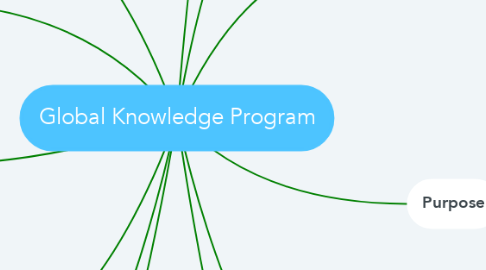Global Knowledge Program
by Benjamin Warren


1. Content Knowledge Needed
1.1. Global Issues and Topics
2. Structure
2.1. Student Lead Learning
3. Educated/Training for Educators
3.1. Allowing teachers to understand how to implement this type of a program.
3.2. Encouragement for teachers to do their own type of traveling or learning
3.3. Provides Professional Development for all teachers before implementing
4. Financial Support for supplies/materials
4.1. Technology: Computers/tools/programs that will allow students to communicate and or explore the world outside of their country.
4.2. Materials: Books, Magazines, Paper, Paint. Those things that will cause students to be able to become creative and allow them to be able to research other place.
5. Parent Support
5.1. Providing education to the parents about what is going on in this type of a program
5.2. Involving parents and encouraging them to discuss the learning students are doing at school will make the experience for students stronger
6. Opportunities for travel and/or virtual field trips
6.1. Allows for students to feel more involved in the events they are studying and problem solving for.
7. Collaborative Team
7.1. Allows students to learn how to collaborate together and communicate with each other
7.1.1. This skill is a real world skill that students will use daily in their lives, no matter where in the world they live.
8. Purpose
8.1. Teaches
8.1.1. Leadership
8.1.2. Teamwork
8.1.3. Problem Solving Global Issues and Topics
8.2. Focus
8.2.1. Real World Issues
8.2.2. Current Event
8.2.3. World Topics
9. Curriculum that engages student learning and skills
9.1. Allow time for students to be able to become excited about what is being taught.
9.2. Meaningful Assessment: Not teaching based off of the test but rather gathering data to show what the student actually knows and understands
10. Interactive Learning
10.1. Students are in control of their learning and discussions in the classroom
11. Real World Problems
11.1. Students must learn to problem solve real world issues.
11.1.1. Deeper Level of Thinking
11.1.1.1. Also allows students to develop the skills to think critically when trying to problem solve

